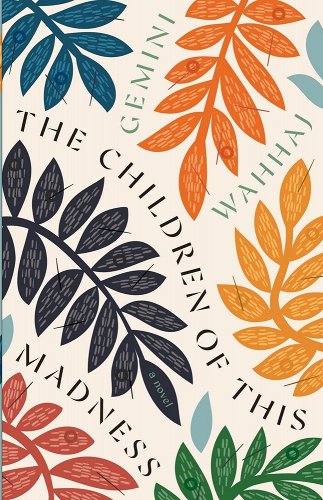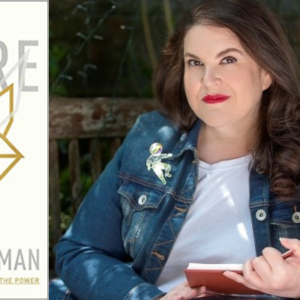
My Mother’s Desire
Dari Binni, 1944-47
I grew up in the village of Dari Binni in Jessore, named after the Binni River that runs beside it. Our home was situated in the southernmost cluster of the village, consisting of several mud-walled huts with thatched roofs arranged around a rectangular mud courtyard. There was a main house with a long veranda in front, another smaller hut to the side, and a kitchen across a mud courtyard. Ours was a joint family, consisting of the families of three brothers, my father and his older brothers Boro Chacha and Mejo Chacha, my grandmother Dadi, and my youngest uncle Chhoto Chacha, who was yet unmarried. For a long time, I was the only child in the household. All day, I wandered alone, eating fruits straight from the orchard behind our house and bathing in the river with the other village children. The river was also where I went fishing with nets, poles, and boxes, returning with juicy puti maachh, which my mother salted and fried for me over the open fire of our clay stove till they became crunchy.
When I was four, my father’s sister came to visit during the summer holidays, accompanied by my cousin Muazzem, who was only two years older than me. While everyone else in the house took their midday nap, we two played on the mud veranda outside my mother’s room, drenched with sweat. I danced on the veranda, jumping and circling Muazzem, singing.
The next minute, I slipped and fell, cutting my leg on the jagged edge of the veranda. Blood spurted from my knee and seeped into the ground. I began to scream, waking up all the women in the house. My mother came running with her sari wrapped around her, long tangles of hair flying behind her. Seeing me lying on the ground, clutching my leg and crying, she cried out. “Naughty boy! You do nothing but make trouble all day! From tomorrow, I shall send you to school!”
“Ayesha, the poor child is bleeding!” My aunt Mejo Chachi pleaded with her, but my mother remained unmoved.
As Mejo Chachi washed my leg, bandaged it, and gathered me in her arms, she stood with her hands on her hips, trembling with rage.
In the evening, my father and uncles returned from their work in the agricultural fields, holding kerosene lamps in their hands. The family gathered on the veranda to eat. My mother and her sistersin-law served their husbands fried bitter gourd, mustard greens, and lentils on top of hard, red grains of rice and fanned their husbands while they ate. Sitting by the dim flicker of the kerosene lamp, my father and my uncles talked about their day. They were landowners. My grandfather, who had been a zamindar’s manager, had left behind many acres of agricultural land for his sons. I sat beside my father and ate from his plate, listening to their talk of land and farming while my mother fed me balls of rice with her hand.
My mother listened quietly to the men’s conversation, but her eyes carried a faraway look. She was perhaps twenty, slender and long, with large eyes and thick, black hair that fell to her hips. Among the villagers, she was considered a beauty. She may have been missing her mother’s house, which lay a few villages away from Dari Binni, but she was close to her sisters-in-law, Boro Chachi and Mejo Chachi, with whom she cooked the family’s meals and went bathing in the river. She was also a favorite of my grandmother Dadi, who put aside the best dishes for her. But when my uncles talked about the land conflicts they had to resolve, the activities of neighboring landlords, and their plans to buy some acres of rice paddy, I looked up at my mother’s face and thought her most alone in the world. She smiled at me and fed me another ball of rice. What was she thinking? I did not know then that sitting in the circle of her husband’s family, fanning my father as he ate, my mother dreamed of how far she would send me away.
She did not want me to become a landlord like my father, having gotten it into her head that a person’s worth lay in their education. She herself had never studied beyond primary school. My father and his brothers also had studied up to class five only. My grandfather had had an unfortunate experience with education involving his eldest son. Since then, he had determined that no son of his should go to school. But my mother had the highest respect for education. She was a village woman, so it is possible that she thought that by becoming a doctor or an engineer I could bring home money, but my father belonged to a well-to-do family and my mother lived comfortably in her in-laws’ house. It is also possible that she wanted me to become someone famous so that she could brag about me to the other villagers, but the most likely explanation is that she wanted me to get an education so that I could escape her prison.
“Shono,” she said, addressing my father in a low voice, pulling her sari around her shoulders, “I am thinking of sending Ketu to school.”
My father, who was a quiet, mild-natured man, looked up in astonishment. “But how? There is no school here.”
A few days later, I accompanied my youngest uncle Chhoto Chacha to a school a kilometer from our home, housed in a singleroom mud hut with a thatched roof. There was no provision for someone as young as me to study in this school, but I was allowed to sit beside my uncle while he attended class.
To reach this school, I rode on my uncle’s shoulders, securing my legs around his neck. Chhoto Chacha was a lanky fourteenyear-old and could barely support my weight. On the way, we passed the Binni River where fishermen threw their nets on the water and agricultural fields where farmers planted rice in the sun-warmed, green paddy, their checked, bright-colored lungi gathered around their loins, out of the way of the mud. Their lean, muscled arms and legs and copper-colored torsos rippled in the sun as they worked.
“Where do you take the boy?” they called to Chhoto Chacha.
“School!” Chhoto Chacha shouted back.
“What for?” they replied, with wonder.
We seldom reached school on time. One day, my uncle and I arrived especially late. The other boys were already crammed together on the benches, crouched over their carbon slates, working on sums.
Seeing us, the master came forward. “You have come late again, you rascal?” He slapped Chhoto Chacha across the cheek and told him to set me down.
Thus dismounted, I stared up at him. His head was bald and shiny. A thick moustache covered his mouth entirely. Leaving us standing in the middle of the room, he waddled to his desk, prised out a thin wooden cane, and walked back slowly as I watched, transfixed on his exposed belly jiggling underneath his shirt.
“Put out your hand,” the master commanded.
Chhoto Chacha extended his palm. The master began to beat Chhoto Chacha with his cane. The stick went flying all over Chhota Chacha’s body, landing blows on the backs of his legs, on his shoulders, and on his head. Chhoto Chacha jumped to escape the master’s lashes, crying out and trying to shield his body with his arms. This made the teacher beat him even harder.
A silence descended on the room. No one dared shift his position or breathe loudly. Outside, the sun beat down on the mud, and a mild breeze flapped the leaves on the trees. The trapped heat inside the hut produced a pool of sweat on the teacher’s face, which was distorted in a grimace. Drops of perspiration slid off his quivering nose and slipped into his mouth.
I ran out of the school, past the rice fields, the hill, and Binni river, teeming with fishing boats and laughing bathers. I did not stop till I reached the fruit orchard behind our house. Plopping down under a tree, I gazed up at the bright blue, cloudless sky and took big gulps of air. School was a place of cruelty and injustice, I decided. I was determined never to return there.
To explain what happened next, I must present a clearer picture of my mother. She was a young girl, full of mischiefs and passions. Once, while she and her sisters-in-law were walking back from the river where they had gone to bathe, they were passing through the bamboo grove behind our house when she pulled down a branch of a bamboo tree. The sharp, thin blade cut her arm open from the elbow to the wrist. Her arms and her sari were covered with blood. Her friends carried her home and placed her on top of our bed, where I had been sleeping. Waking up and seeing her lying in a pool of blood, I began to scream. Her friends had to drag me off her.
My mother had pleaded with the schoolmaster to allow me to sit in his school. Now my failure to return there filled her with humiliation. She worked distractedly in the kitchen, making careless mistakes. Her sari caught fire from the clay stove. Her sisters-in-law scolded her, pointing out that nobody in the village had studied beyond primary school. My grandmother Dadi, a diminutive woman with a long, thin face, cried that I was too young for my mother’s schemes. But my mother would not listen to anyone. She had begun to hatch her next plan. She was a quiet person, but when she made up her mind, nobody could stop her.
One night, I opened my eyes to find my mother’s face bent over me in the dark. She was shaking me by the shoulder. I peered at her sleepily and tried to shake her off.
“Ketu! I am sending you to my mother’s house,” she said.
I nodded and went back to sleep.
Early the next morning, my father dressed me in the bitter cold, pulling a shirt and half pants over my shivering body. The leaves and the grass were drenched with dew. A pigeon rumbled in the smoky air as our cows stirred from sleep, lowing throatily. My grandmother and my aunts worked in the kitchen with their shawls wrapped tightly around their bodies. My mother swept the veranda and the mud courtyard, setting off a dust storm. My eldest uncle Boro Chacha sat on the veranda in a cane chair, rubbing his beard and chewing a neem branch, looking at my mother with fiery eyes. Mejo Chacha and Chhoto Chacha splashed their faces with cold water out of a drum. Through their stiff gestures and stern looks, all the members of the household made it clear to my mother that she was acting against their wishes.
Crouching in the frigid air, I gulped down the fermented rice, washed my fingers from a tin cup of cold water, and stood up. My father wrapped a shawl around my body and hoisted me onto his shoulders. Holding the edge of her sari over her head with one hand, shading her eyes with her other hand, my mother stood smiling, watching me as I set off for my maternal grandmother’s house, my Nani Bari Hairnakunda, in another village nineteen kilometers away. I would not return until I was eight years old, already an outsider.
__________________________________
From The Children of This Madness by Gemini Wahhaj. Used with permission of the publisher, 7.13 Book.s Copyright © 2023 by Gemini Wahhaj.


